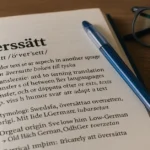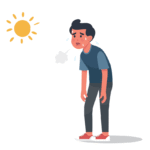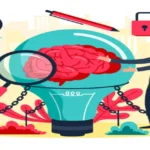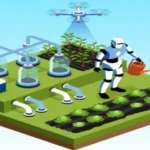Importance Of Paper Proofreading
Sometimes, while composing an essay, research paper, thesis, or any academic paper, one may underestimate the final step before submitting: proofreading. The fact is that a correctly written text demonstrates attention and detail care, and showcases professionalism and dedication. Each text must go through a rigorous process of editing and proofreading.
You should know that even a simple typo can cause misunderstanding of your idea and blemish on your reputation. So, proofreading and elimination of all types of mistakes are indispensable and not optional to achieve successful results.
The point is that a great deal of mistakes are invisible to you if you’re not a professional proofreader. When you think about how to do deep and accurate proofreading, you can rely on professionals in this field at https://mypaperdone.com/paper-proofreading. Keep in mind that, except for evident grammar mistakes, there can be many errors in modifying the layout. Proofreading is the process that helps you to present your text cleanly, logically, and accurately.
Proofreading Paper: Common Mistakes
The role of proofreading of any academic paper is fundamental. Firstly, if your written paper contains errors, it influences the first impression of the entire paper. The second, possible mistakes can get worse reading, as your sentences can be unsound and ridiculous. To perfect any kind of text you can refer to experts visiting this website homepage.
Proofreading is an annoying and very scrupulous part of the whole working process. But it’s that part which can capture the reader’s attention from the very beginning. The person reading your text and noticing many mistakes might lose interest in maintaining further reading due to a wrong opinion about your professionalism.
It’s possible to categorize mistakes into some common types:
- Punctuation control: one of the difficult tasks is correcting punctuation marks, as the number of applying rules is numerous. The correct placement of commas is always a challenge, especially if you have not graduated from a linguistic college.
- Spelling errors: these mistakes include incorrect use of letters, apostrophes in words, and use of double letters. For instance, when you write “precede” instead of “proceed”, be sure that the thought you want to share will be definitely misunderstood.
- Grammatical errors: this kind of mistake is one of the most widespread in texts. It includes syntactic errors that mean the wrong structure of the sentence, inappropriate use of grammar rules, and incorrect use of word types and their forms (prepositions, adverbs, articles, and others). To compare, just imagine adding hot chili pepper instead of paprika while cooking and see the effect.
The list of errors to correct is numerous: it includes the use of spaces, correct layout, typos, phonological errors, and incorrect formatting of citations as well. The correction requires time, so don’t hurry up but do it meticulously.
Scientific Paper Proofreading
The most dangerous mistakes in scientific papers concern the terminology. It’s recommended to check the text several times, to be sure it’s free of errors. Read some useful proofreading tips in this article.
If you prefer to work using Google Docs, some mistakes in your text will be corrected automatically. But don’t forget that the author is you, and the computer doesn’t know the exact idea you’re going to convey to the reader.
Proofreading can be and must be done if you prefer paper for writing. There are many people who find difficulty expressing thoughts using digital devices. The process of writing by means of the pen and a sheet of paper increases brain productivity. If you have observed people doing it, you might have noticed how fast and uninterruptedly their hands moved. In this way, you don’t have distractions, and the flow of thoughts is expressed on paper.
Another side of the coin of proofreading on your own is that no program is involved in this process, and you must balance your time. If you have inspiration using the pen, the process of writing will be fast, and it allows you to save time for better proofreading afterward.
It’s your choice and preference how to write, but remember that scientific paper proofreading is as important as your look in front of the committee. You can’t appear in pajamas and be messy when you submit your work, consequently, it’s important to keep in order your scientific paper.
Advice on How To Do Academic Paper Proofreading
The principal characteristics that a good proofreader should have are patience, precision, and acute eyesight. But there is one important piece of advice to follow: don’t correct your work immediately. It can be helpful to follow some advice on how to check your paper by visiting this website.
If you have just finished writing, your eyes and brain, being tired, will not be able to elaborate and reread the text correctly. It’s important to rest for a few hours, to leave your paper aside, and to refresh your mind.
Academic paper proofreading requires silence and full concentration. That’s why you need to find a quiet place where no outside sound will disturb you. There is nothing worse than being interrupted in the middle of the process. Once concentrated on the sentence, it’s important to not lose a thread of logic.
If your manuscript is long, you should think about dividing it into smaller parts, chapters or sections. In case you feel tired, it’s better to take a break.
Don’t undervalue proofreading and organize the process of completing an academic paper well. If you know that you’re not good in the linguistic sphere, ask for help from some company offering this service.











